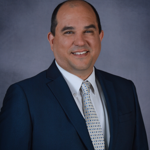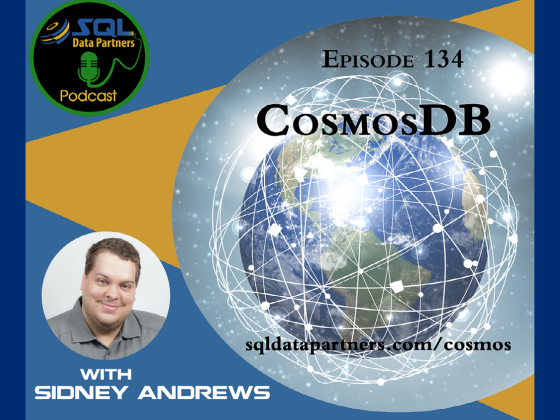CosmosDB
It is not very often the internal codename is used when a product is launched; however, when you think about a database designed with global distribution in mind, CosmosDB makes sense. I was a bit shocked to hear Microsoft was releasing another database technology in 2017; however, the team leading the charge was very impressive and it looked like it was solving problems other database engines could not. In this episode, we talk with Sidney Andrews about the Cosmos platform, what we can expect from the product and how it differs from SQL Server. I think you will find the conversation very interesting
- https://docs.microsoft.com/en-us/azure/cosmos-db/introduction
- https://azure.microsoft.com/try/cosmosdb/
- https://azure.microsoft.com/resources/application-innovation-real-time-personalized-experiences/
- https://www.microsoft.com/handsonlabs/SelfPacedLabs#keywords=cosmos%20db&page=1&sort=Newest
- https://cosmosdb.github.io/labs/
Episode Quotes
“[CosmosDB] is a different offering for people whose requirements are slightly different than the traditional relational database.”
“I like to say scale is a configuration setting. It’s not a project anymore.”
“Even for me, as a developer, it took a lot of time and a lot of changing my perspective to really understand what’s going on, but from a DBA perspective, I think your interface is going to be the Data Explorer.”
“The intention is not for Cosmos to be an island, but to be just as much an integrated part of your workflow.”
“You have to know the purpose of the tool and what your needs are and then try to match them appropriately.”
Listen to Learn
00:41 Intro
01:49 Introduction to Kevin Feasel
02:57 Compañero Shout-Outs
03:33 SQL Trail Conference
05:39 Intro to the guest and topic
06:35 Why did Microsoft introduce a new database technology in 2017?
07:43 Who are the primary users of CosmosDB?
11:00 CosmosDB is multi-modal
15:00 Different consistency levels with CosmosDB
18:12 Consistency models typically seen in the real world
19:01 Discussion on pricing
23:56 You can dynamically scale your RUs
25:12 Interfacing SQL Server with CosmosDB
28:16 Use a retry model or pattern just in case you’re not successful on the first try
31:27 Life of DBAs and administrators with CosmosDB
40:07 Difference between Data Lake and CosmosDB
41:38 Match your needs to the appropriate tool
44:40 SQL Family Questions
47:09 Closing Thoughts
Our Guest

Sidney Andrews
Sidney Andrews is a Microsoft Certified Trainer and Azure MVP with SeeSharpRun.NET. His developer background is in XAML, ASP.NET and Entity Framework development. Sidney has driven efforts to develop and deliver Azure readiness training through channels such as Ignite, Microsoft Tech Summit, Microsoft Virtual Academy, whitepapers, and courseware. Sidney is also the author of multiple free, online courses on edx.org
Meet the Hosts

Carlos Chacon
With more than 10 years of working with SQL Server, Carlos helps businesses ensure their SQL Server environments meet their users’ expectations. He can provide insights on performance, migrations, and disaster recovery. He is also active in the SQL Server community and regularly speaks at user group meetings and conferences. He helps support the free database monitoring tool found at databasehealth.com and provides training through SQL Trail events.

Eugene Meidinger
Eugene works as an independent BI consultant and Pluralsight author, specializing in Power BI and the Azure Data Platform. He has been working with data for over 8 years and speaks regularly at user groups and conferences. He also helps run the GroupBy online conference.

Kevin Feasel
Kevin is a Microsoft Data Platform MVP and proprietor of Catallaxy Services, LLC, where he specializes in T-SQL development, machine learning, and pulling rabbits out of hats on demand. He is the lead contributor to Curated SQL, president of the Triangle Area SQL Server Users Group, and author of the books PolyBase Revealed (Apress, 2020) and Finding Ghosts in Your Data: Anomaly Detection Techniques with Examples in Python (Apress, 2022). A resident of Durham, North Carolina, he can be found cycling the trails along the triangle whenever the weather's nice enough.
Want to Submit Some Feedback?
Did we miss something or not quite get it right? Want to be a guest or suggest a guest/topic for the podcast?
